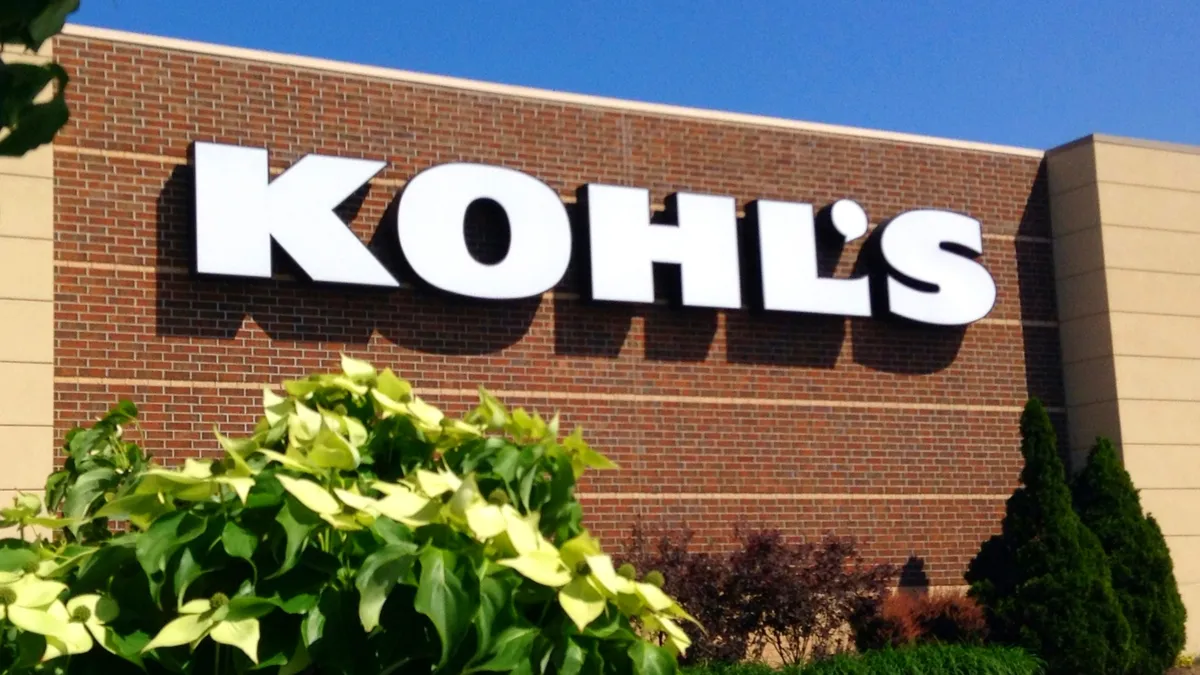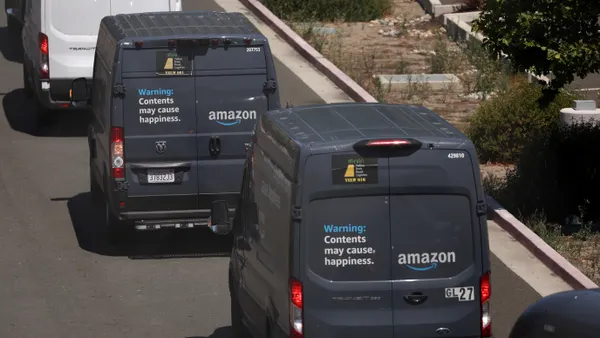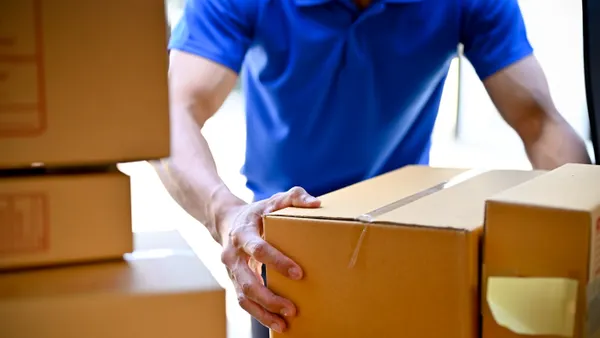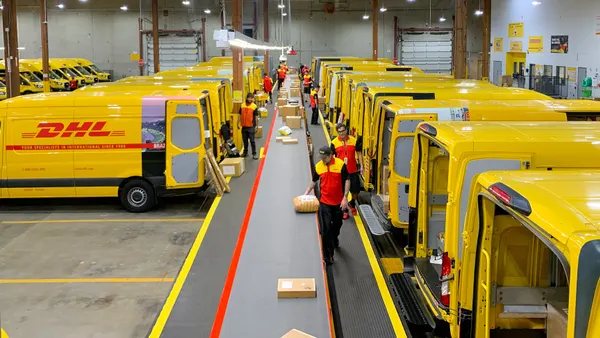Dive Brief:
- Home Depot is among the backers of crowdsourced delivery startup Roadie's $37 million Series C funding round announced Monday at The Retail Industry Leaders Association's LINK2019 conference, bringing the company's fundraising total to $62 million.
- Roadie and Home Depot first teamed up in the fall of 2018 as part of Home Depot's effort to offer same-day delivery from stores in Philadelphia, San Francisco and Atlanta, where the startup is headquartered. Same-day or next-day delivery is now available on select items in 35 metro areas, with the ultimate goal of reaching 90% of the U.S. in one day, according to a statement from the retailer emailed to Supply Chain Dive.
- "The Home Depot is committed to building the fastest, most efficient supply chain in home improvement, and our customers have made it clear that same-day or next-day deliveries to their homes and job sites are a critical part of that," Mark Holifield, EVP of supply chain for Home Depot, said in a statement.
Dive Insight:
Crowdsourced delivery is a growing segment in the on-demand logistics field. In fact, Walmart executive CEO Doug McMillon said last week that crowdsourcing was the bright spot in Walmart's complicated delivery mix.
"It's a huge validation of how the crowdsourced model solves a problem all retailers are going through," Roadie CEO Marc Gorlin told Supply Chain Dive regarding Home Depot's investment in the startup. "They didn’t believe me for the first couple years we started pitching it to them."
Since Roadie's algorithms are designed to match items to drivers already near the pickup and ideally already heading toward the delivery, the platform attracts retail employees and frequent visitors like those working in construction to take on pickups on their way home from a shift or near a job site. This gig-based "on-the-way" model not only theoretically reduces the carbon footprint of the service, but it also allows retailers to flex up and down their delivery capacity as needed.
Roadie drivers have a variety of vehicles, especially since Roadie offers pickups to drivers already at or near Home Depot stores. That means contractors with vans or employees leaving work in trucks are offered pickups in destinations that make sense for their own destination, based on information the app collects when drivers register. This makes deliveries possible and profitable with larger loads at longer distances.
Distance is a particularly salient issue in the space as long driving distances are one of that factors that reportedly made a delivery relationship with Walmart untenable for Roadie competitor Deliv.
"We’ve proven we can create this delivery network a lot more cash efficiently than others," Gorlin said, adding that when the platform was put to the test on Black Friday weekend last year, just eight deliveries out of thousands were late.
Retailers, said Gorlin, were not built to manage the last mile, but they are starting to realize flexible last mile delivery can act as an extension of their own supply chains. Roadie drivers are also rebalancing inventory for Petco, for example, when items required for customer's recurring subscriptions are not in the optimal location.
"If you can integrate commerce with your ground game, you can move toward a localized supply chain really quickly. Their stores are closer to the last mile than anybody else. People are realizing that there are relatively efficient options that can scale into any environment," said Gorlin.














